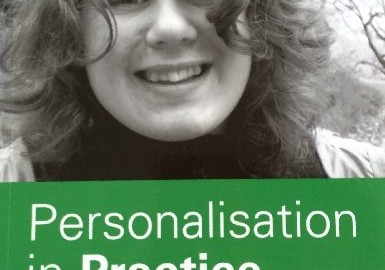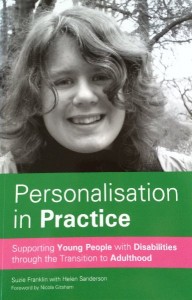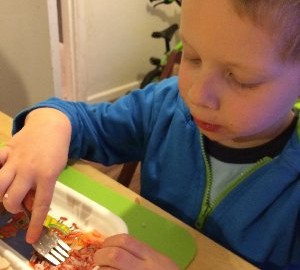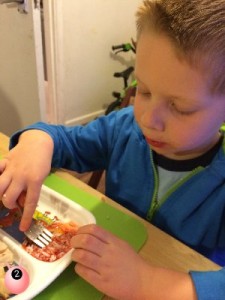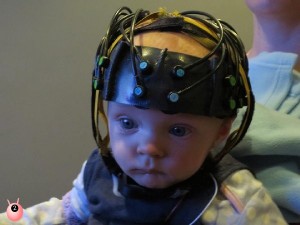Personalisation in Practice – Supporting Young People with Disabilities through the Transition to Adulthood
Personalisation in Practice is a book that describes how the right support into adulthood made the difference to Jennie, a young person with Autism and learning difficulties. Personalisation in Practice tells of the benefits of person-centred planning which ultimately led to Jennie making the transition from living with parents to living in her own flat. The author, Suzie Franklin who is Jennie’s mother, describes the early years, and the struggles to come to a diagnosis, before explaining exactly what person-centred planning is. Suzie Franklin talks us through Person-Centred Reviews, Circle of support and other steps that were made to ensure Jennie had an easy transition into adulthood.
Personalisation in Practice really provides insights and questions to think about in how people can help guide the journey of someone with disabilities into adulthood. It reassured me about some of the things that I have already done (for both my teen and youngest son).
What my sons with disabilities futures are going to be like, and how they are going to cope, have always been things I think about. Any help on what things can be done to help this transition into adulthood are always welcome, and Personalisation in Practice provides this. Our oldest son has Asperger’s Syndrome and is seventeen years old. He is doing very well academically, he has a part time job (in a familiar place) and is even beginning to socialise with friends. The biggest breakthrough for us is that his hygiene standards have improved, and a lot of his behaviours we are more and more attributing to his age as opposed to his disability. It provides us with so much hope for the future of our youngest and we hope that he is on the same path. Personalisation in Practice also has a lot of resources for advice for families, schools, providers and local authorities at the end of the book.
There are lot of personal touches to the book as Suzie Franklin lets us into their lives in order to help support others. I think that parents with children like Jennie will nod understandingly throughout the book. Such as Jennie being “honest” and saying what she thinks, not worrying what other people think. Some parts will touch their pain, their fears, and other parts will make them smile and give them hope for the future. I loved how positively Jennie was described, loving life despite any difficulties she may face.
ISBN: 9781849054430
Jessica Kingsley Publishers
I received a free copy of Personalisation in Practice for purposes of review. All words and opinions are my own.
